This issue of Honoring Health focuses on the latest public health and research information available on COVID-19, to keep communities informed.
Get the latest public health information from the Centers for Disease Control and Prevention (CDC), and the latest research information from the National Institutes of Health (NIH).
The Indian Health Service (IHS) continues to work closely with tribal partners to coordinate a comprehensive public health response to COVID-19. Read the latest information from the IHS.
Featured Health Information
How We Can Help Build Confidence in COVID-19 Vaccines
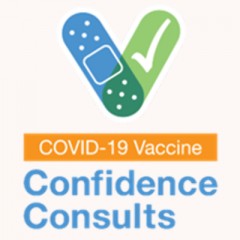
Strong confidence in the COVID-19 vaccines within communities leads to more people getting vaccinated, which leads to fewer COVID-19 illnesses, hospitalizations, and deaths. The CDC has tools we can use to communicate clear, complete, and accurate messages about COVID-19 vaccines, to help people in our community become confident in their decision to be vaccinated.
For more information, email confidenceconsults@cdc.gov or submit the online Request Form.
More Vaccine-Related Resources From the CDC
- Different COVID-19 Vaccines
- Myths and Facts About COVID-19 Vaccines
- Frequently Asked Questions About COVID-19 Vaccination
- COVID-19 Vaccine Communication Toolkit for Community-Based Organizations
Community Engagement Alliance (CEAL) Against COVID-19 Disparities: Reducing the Burden of COVID-19 on the Hardest Hit Communities

We all play a vital role in making sure our communities have important, accurate information about public health and clinical research. The CEAL website provides trustworthy information for community engagement and outreach to those hardest hit by the COVID-19 pandemic, with the goal of building long-lasting partnerships as well as improving diversity and inclusion in the research response to COVID-19.
Find resources—from videos and social media posts to handouts and fact sheets—to start conversations about these critical topics.
COVID-19 Prevention Network (CoVPN): Spreading the Word About the Importance of COVID-19 Clinical Trials
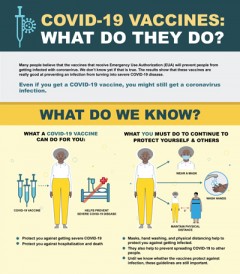
The CoVPN, formed by the NIH to respond to the global pandemic, uses the infectious disease expertise of its existing research networks and global partners to address the pressing need for vaccines and monoclonal antibodies against SARS-CoV-2, the virus that causes COVID-19. The network provides:
- Information about the science of COVID-19 vaccines and monoclonal antibodies
- Infographics and videos to better understand COVID-19 clinical studies
- Infographics and videos explaining what to expect when you volunteer for a COVID-19 vaccine study
- Information about a faith-based initiative to enhance trust and meaningful engagement in key groups throughout the U.S. disproportionately impacted by COVID-19 disease and death. Participants include Black, Latino, and American Indian/Alaska Native/Native Hawaiian faith leaders.
News & Events
Tribal Health Research Office Video
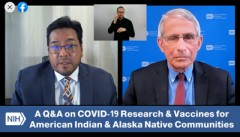
Watch this recording of the NIH Facebook event, A Q&A on COVID-19 Research & Vaccines for American Indian & Alaska Native Communities featuring Dr. Anthony Fauci, Director of the National Institute of Allergy and Infectious Diseases, and Dr. David Wilson, Director of the NIH Tribal Health Research Office, discussing important questions about COVID-19 research, clinical trials, and vaccines within American Indian and Alaska Native communities.
National Minority Health Month: #VaccineReady
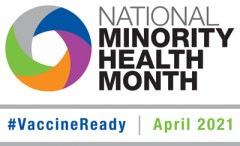
April is National Minority Health Month, and this year, the HHS Office of Minority Health (OMH) is focusing on the disproportionate impact COVID-19 is having on racial and ethnic minority and American Indian and Alaska Native communities and underscoring the need for these vulnerable communities to get vaccinated as more vaccines become available.
This year’s theme for National Minority Health Month is #VaccineReady. The goal of this campaign is to empower vulnerable populations to get the facts about COVID-19 vaccines, share accurate vaccine information, participate in clinical trials, get vaccinated when the time comes, and proactively practice COVID-19 safety measures.
NIH Stands Against Structural Racism in Biomedical Research
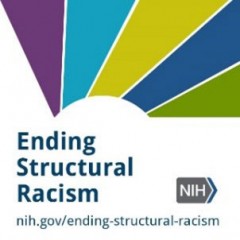
Earlier this month, NIH Director Francis S. Collins, M.D., Ph.D., announced the launch of UNITE, a new NIH initiative aimed at bringing an end to structural racism and racial inequalities in biomedical research. The NIH is also seeking input from the public on the approaches the agency can take to advance racial equity, diversity, and inclusion within all facets of the biomedical research workforce, and expand research to eliminate or lessen health disparities and inequities.
Historical racism has led to the marginalization and oppression of Indigenous peoples, African Americans, Latinos, and other communities of color. Structural racism has resulted in persistent health disparities, poor health status, and premature mortality as demonstrated by the current disproportionate burden of morbidity and mortality from COVID-19. Within the biomedical research enterprise, structural and institutional racism has resulted in inequitable access to funding, training, and workforce opportunities. The NIH is in a position of influence to contribute to positive, visible, and sustainable change to break the cycle of institutional racism with systems, policies, social norms, and practices that remove stereotypes and mitigate the pervasive effects of racism.
Research Highlights
Expanding COVID-19 Testing on Reservations
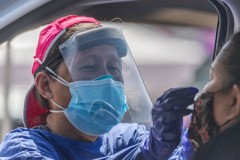
Researchers are studying ways to encourage American Indians to seek tests as soon as possible after exposure to COVID-19, an important part of controlling outbreaks in communities.
Read more Research Highlights about the efforts underway to prevent, detect, and treat COVID-19 and its effects on our health.
Using Mobile Technology to Improve Care for Teens With Depression

The need for mental health services that help teens manage and treat symptoms of depression has never been greater, but these services are not always available or easy to access. Current smartphone technology offers a way to collect and evaluate much of this health data with minimal effort. Researchers are investigating whether this technology can be used to create a passive monitoring system that can predict teens’ depressive symptoms and improve the quality of their care.

